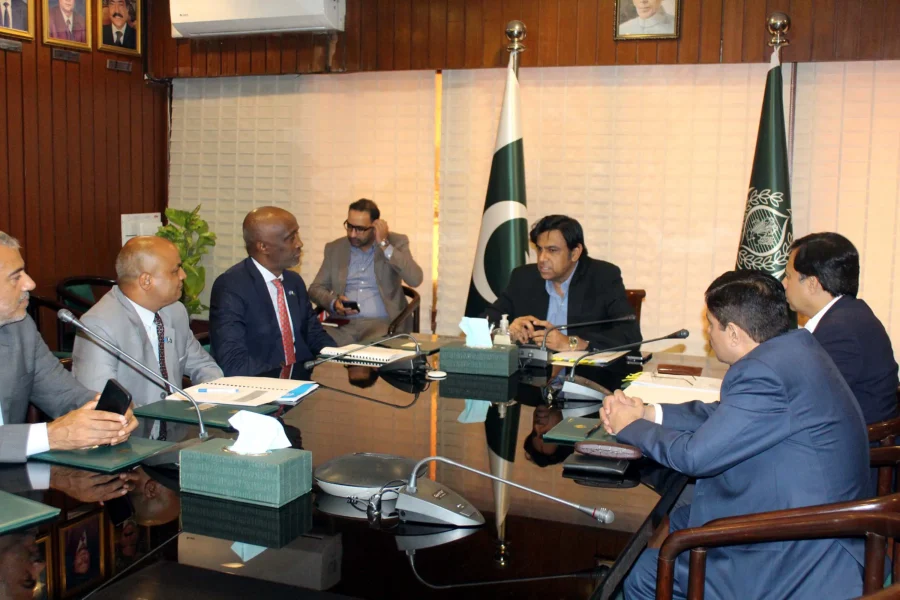A high-level United Nations delegation, led by UN Resident and Humanitarian Coordinator for Pakistan, Mohamed Yahya, met with Sindh’s Chief Secretary, Asif Hyder Shah, to address pressing environmental, humanitarian, and cultural issues. The meeting focused on UNESCO’s Makli Heritage Site, the Living Indus Project, and the broader climate challenges faced by the province. Representatives from key UN agencies, including UNOCHA, UNICEF, and UNDSS, also attended the session. Chief Secretary Shah commended the UN’s post-2022 flood rehabilitation efforts, emphasizing the severe toll climate change has taken on Sindh.
He spoke of frequent floods, rising sea levels, and worsening pollution, all of which have contributed to displacement and environmental degradation in the region.
Shah also updated the delegation on the damage caused by recent rains, noting that divisional commissioners have been assigned to evaluate the impact on infrastructure and agriculture. A key point of discussion was the conservation of the Makli Graveyard, a UNESCO World Heritage Site. Shah urged the UN to support efforts to preserve the historic site, underscoring its cultural significance and the need for international assistance to protect it for future generations.
The UN delegation, reaffirming its commitment, proposed a climate dialogue in Sindh, aiming to bring together donors and partners to explore sustainable solutions to the province’s environmental crises. Yahya highlighted the importance of developing cost-effective and practical initiatives to address climate-induced problems such as sea intrusion and land degradation. Energy policy was another major topic, with the UN offering technical assistance to help Sindh transition to sustainable and renewable energy sources.
This aligns with the province’s goal to mitigate its energy crisis and reduce reliance on fossil fuels. Chief Secretary Shah also stressed the importance of the Living Indus Initiative, a joint effort by the Sindh government and the UN aimed at addressing environmental issues through 25 planned interventions. He highlighted the initiative’s potential to bring long-lasting positive change to Pakistan and called for the preparation of viable projects under the initiative. Shah emphasized that close cooperation between the government and international partners would be key to the initiative’s success. The UN delegation expressed its willingness to visit the Makli Graveyard and provide support for its preservation, ensuring that the historic site is protected for generations to come.










